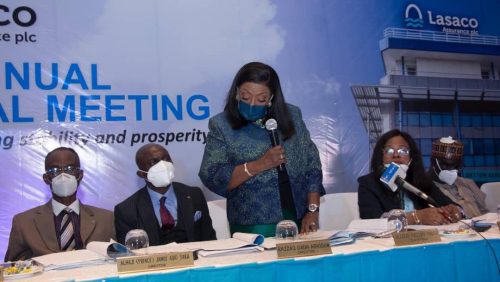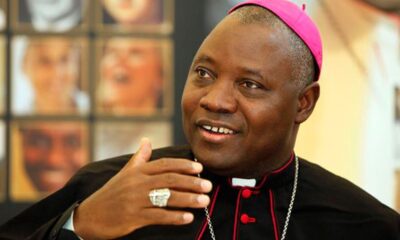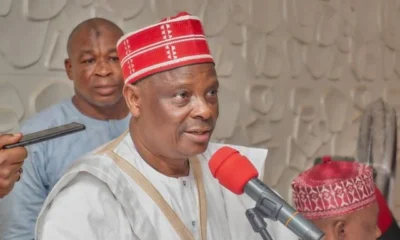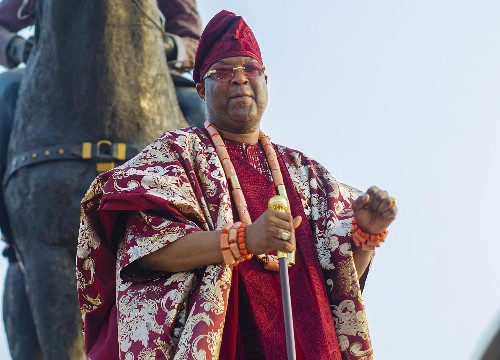The Chairman of Lasaco Assurance Plc, Mrs Olateju Philips, has disclosed that in spite of the challenging situation experienced in the year 2020 as a result of the COVID-19 pandemic, the company was able to deliver an awesome performance with a record Gross Premium Written of N10.937billion.
Mr Philips who made this known during the company’s 41st Annual General Meeting held at Marriott Hotel, Ikeja GRA Lagos, added that Lasaco Assurance Plc was able to generate N8.05billion in net underwriting income as against N6.71billion made in 2019, signifying an increase of 20% year on year.
According to her,” In spite of the challenging situation experienced during the course of the year, the company was able to deliver an awesome performance in 2020 and grew stakeholders’ value. We recorded a Gross Premium Written of N10.937billion.
“This signifies a 17% growth in performance compared to Gross Premium Written in 2019. The company made N8.05billion in net underwriting income as against N6.71billion made in 2019 signifying an increase of 20% year on year.
“100% increase was recorded in profit before tax from N315.7billion in 2019 to N679.4million in 2020. Our total assets grew from N18.5billion to N20.5billion signifying an 11% increase while shareholders’ funds declined by 2% from N7.98billion in 2019 to N7.80billion in 2020.
Speaking further, she said that with the array of economic events which the company was able to manage in the previous year and strategies put in place by the leadership of the organization, 2021 promises to be better for Lasaco Assurance Plc.
“We are also hopeful that the economic policy adjustments and reforms will aid the business environment positively.
“In the last one year, we have worked assiduously to map out strategies to improve our identity and visibility to increase sales and market share. Our strategies to improve our identity and visibility to increase sales and market share.
“Our strategic digital transformation plan will aid customer experience and the diversification of income streams deepening will add tremendous value to the bottom line.
“Plans have also been devised for the diversification of our investment portfolio. This will spur the organization to grow through an increase in investment income.
She lamented that the COVID-19 pandemic placed Nigeria in a critical condition in 2020 as the country locked down economic activities at the beginning of the quarter of 2020 in order to minimize the spread of the COVID-19 virus.
She said the country entered the crisis with the failing per capital income, high inflation, and governance challenges which affected every aspect of business and economic lives.
“Nigeria’s economy experienced a 3.6% contraction in the first three quarters of 2020 leading to the worst recessions in decades, oil prices improved and the authorities employed policies to counter the economic distress.
“The economy even with the various unrest experienced across the country, returned to growth albeit marginally, in the final quarter of the year 2020, with GDP expanding 0.11% year-on-year beating market expectations of 1.9% decline.
“Inflation galloped to a 34- month high 15.75% in December 2020 from 11.98% same period in 2019, fueled by increase food prices due to constraints on domestic supplies and the effect of an exchanged premium that widened to about 24%.
Mrs Philips lamented that citizens agitations in many parts of the country, especially the End SARS protest also disrupted lots of activities leading to lost of lives and properties.
She stated that this affected insurance businesses in the country as claims in both high frequency, high severity, and near catastrophe were recorded countrywide.
“In 2020, Nigeria financially markets based her actions on the monetary policy. The equity market rose to 50% in 2020. Its tops performance is over a decade. However, stock performance in 2021 depends on the direction of monetary policy and relative to the business environment.
“Nigeria economy is anticipated to grow by 1.8% in 2021. Despite the current encouraging external situation with oil prices recovery and growth in advanced economies, reform shortfall would hinder the renewed economic expansion and undermine progress towards Nigeria’s development goals.
“Hopefully, policy adjustments and reforms designed to shift the country from its dependence on oil and to diversify the economy towards private sector-led growth will set Nigeria on a more sustainable path to recovery,” she averred.
She assured the shareholders, board members, management, and staff of Lasaco Assurance Plc, that it is the dawn of a new era adding that together with their continuous supports, the legacy of the organization will be sustained.


 BIG STORY4 days ago
BIG STORY4 days ago
 BIG STORY3 days ago
BIG STORY3 days ago
 BIG STORY3 days ago
BIG STORY3 days ago
 BIG STORY3 days ago
BIG STORY3 days ago
 BIG STORY5 days ago
BIG STORY5 days ago
 BIG STORY4 days ago
BIG STORY4 days ago
 BIG STORY3 days ago
BIG STORY3 days ago
 BIG STORY1 day ago
BIG STORY1 day ago





















